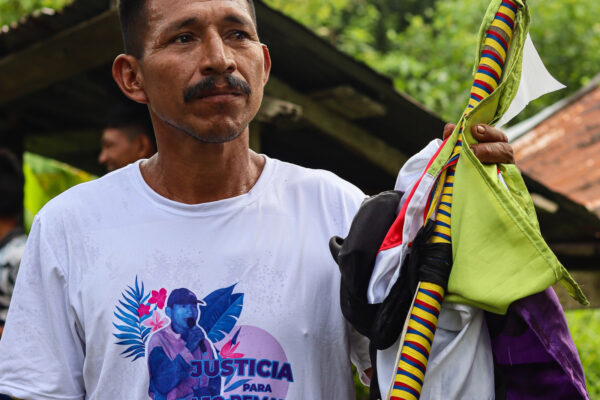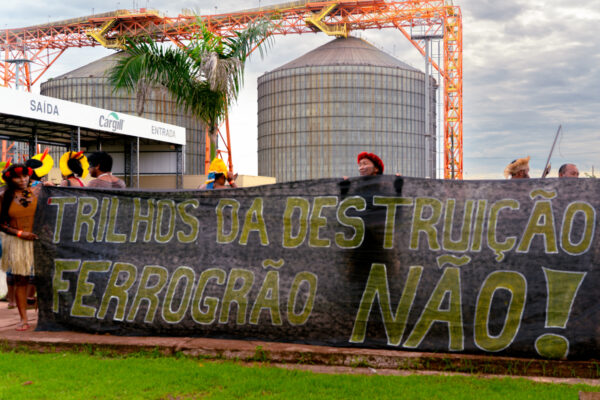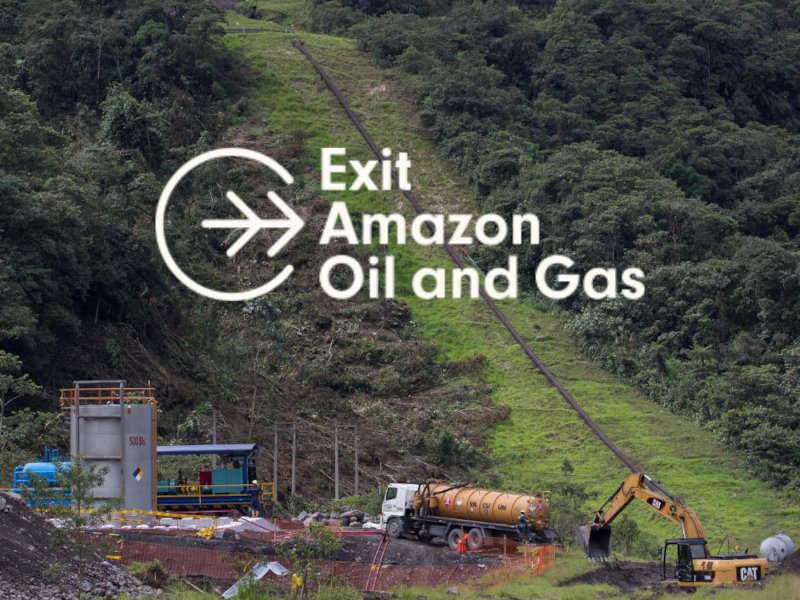Oakland, CA – Tomorrow, HSBC will hold its Annual General Meeting. A London-based international bank, HSBC has closed the meeting to shareholders in response to the COVID-19 pandemic and will neither webcast the meeting nor allow shareholders to participate. Shareholders can only ask questions via email, which HSBC will answer “by publishing responses on HSBC.com as soon as practical after the AGM.” This means it is shutting out the voices of those impacted by its investment decisions, like Indigenous peoples in the Amazon rainforest.
HSBC recognizes it has “a responsibility to our customers, employees and the communities in which we operate,” and pledges to minimize its impact on the environment and to “help the global transition to a low-carbon economy.” Yet Amazon Watch research found that HSBC contributed over $1.2 billion since (Q3 2017) to companies with current plans to expand oil drilling operations on the territories of Indigenous peoples in the Amazon rainforest, in direct conflict with these peoples’ expressed wishes. Separate Amazon Watch research found that HSBC has provided over $1.6 billion in credit to beef companies directly linked to illegal deforestation in the Brazilian Amazon, where fires raged last summer and Indigenous leaders are being killed for defending their territories.
Moira Birss, Climate and Finance Director at Amazon Watch, issued the following statement:
“HSBC has taken advantage of the COVID-19 pandemic to shut shareholders and community advocates out of its most important decision-making meeting of the year, and did not even use the occasion of its annual meeting to announce any new steps on climate, as competitors like Citigroup did. A key question for HSBC executives and board members is how the bank squares its investments in the industries that cause climate change and contribute to Indigenous rights violations with its commitments to people, communities, and a low-carbon economy.
“If HSBC truly wants to live up to its responsibility to communities and its pledge to a low-carbon economy, it must end corporate financing for fossil fuel expansion in the Amazon and around the world – particularly when that expansion happens on Indigenous territories.”
Background
A March 2020 Amazon Watch report, Investing in Amazon Crude, uncovered HSBC’s role as a top financier of Amazon crude oil: as of Q4 2019, HSBC held approximately $595,000,000 in stocks and bonds in GeoPark and Andes Petroleum, and between (Q3)2017-(Q4)2019 it contributed $648 million in debt financing to enable regional expansion of these companies’ oil operations. This brings HSBC’s total contribution to Amazon crude oil extraction to over $1.2 billion.
- GeoPark is a Chile-based oil and gas company with an oil lease in the Peruvian Amazon that overlaps Achuar and Wampis territory. GeoPark just completed the purchase of Amerisur, a British company with leases in the Colombian Amazon that overlap with Siona and traditional campesino territory. See pages 22-25 of Investing in Amazon Crude for details.
- Andes Petroleum is a petroleum exploration and production partnership of two Chinese state-owned companies, which has held leases for blocks in the Ecuadorian Amazon overlapping the territory of the Kichwa of Sarayaku and the Sapara. The Sapara nation was included in the Representative List of the Intangible Cultural Heritage of Humanity by UNESCO in 2001. See pages 18-19 of Investing in Amazon Crude for details.
An April 2019 Amazon Watch report, Complicity In Destruction II, showed how major commodity traders and international financial firms are directly linked to illegal deforestation in the Brazilian Amazon. It found that HSBC provided over $1.6 billion in credit to Brazilian beef companies linked to illegal deforestation – Marfrig and Minerva. Like JBS, their better-known counterpart among leading Brazilian meat-packing companies, Marfrig and Minerva claim deforestation-free supply chains among their primary cattle suppliers in the Brazilian Amazon. However, recent reports have shown that these companies have lax or non-existent tracing standards for secondary cattle suppliers, who are linked to explosive illegal deforestation, arson, and violence. See pages 24-27 of Complicity In Destruction II for details.













